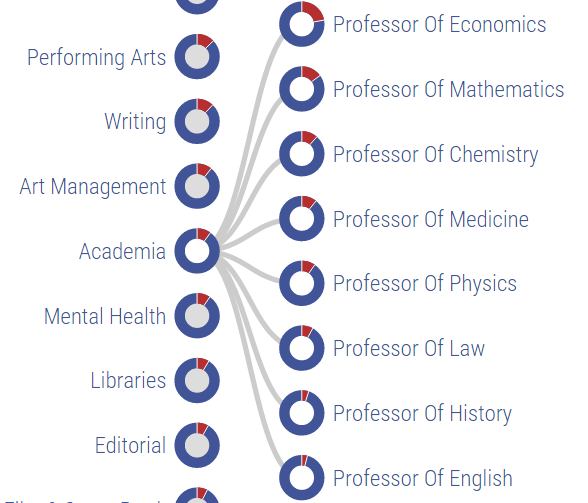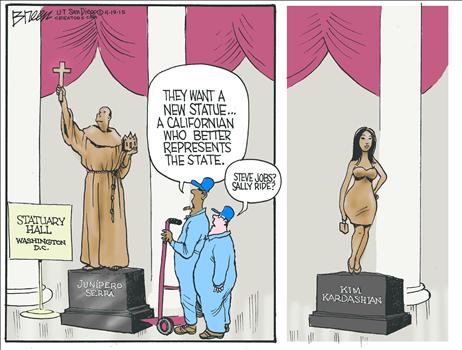
(source: Democratic vs. Republican occupations)

(source: Democratic vs. Republican occupations)
 Carl Trueman pens a worthy response to a vapid article:
Carl Trueman pens a worthy response to a vapid article:
“If it is good for me, it must be good for society” is dangerous enough as a principle of social ethics. To replace that with “If it cures my boredom, it must be good for society” is lunacy. And who will pay the interest—financial and social—on this sexual ponzi scheme? Everyone, from the poor and the children of broken homes to generations yet unborn.
The other disturbing element is the reductionist view of freedom. The rhetoric of liberation pervades the article from the title onwards, and yet in what does this woman’s freedom consist? Her freedom and thus her personhood have been reduced to nothing more than the ability to have a series of loosely connected orgasms, unencumbered by any relational responsibility, as a means of punctuating the tedium of life.
(source: Freedom Is . . . a Sexual Ponzi Scheme? | Carl R. Trueman | First Things)
Hear, hear! Kevin Williamson comes through with another solid critique of “security theater.”
The scale of the intrusive, 4th-Amendment violating TSA bureaucracy is simply out of line. It is neither just, nor necessary, nor effective–but like most fascist cooperations between the corrupt and the corruptible, assertive regime and avaricious corporation, it uses the fears of the ignorant and supine to subject us all to humiliation and extortion.

We are about a decade past the time for reforming this mess.
When he lamented the crimes of socialism in arms, George Orwell received the usual rejoinder, that one has to break a few eggs to make an omelet. Orwell, who was unique among the literary men of his generation, had the insight to ask the necessary question: “Where’s the omelet?”
We might ask the same thing regarding the Transportation Security Administration.
(source: The TSA’s 95 Percent Failure Rate: Security Theater as Farce | National Review Online)

Why does the intolerant Left so vigilantly police speech — introducing even a Twitter “bot” to automate the scolding about the “correct” gender pronoun to use in reference to Jenner? Because they know speech — including simple pronouns — matter. Don’t consent. Laverne Cox is not a woman, and neither is “Caitlyn Jenner.” He is a man with breast implants. He’s always been a man, and he will always be a man. Yes, he’s deeply troubled. Our hearts go out to him in his pain, but the answer is not found in radical self-regard, and it’s certainly not found in surgical mutilation. He is a man created in God’s image, yet a man experiencing deep anguish about his very creation. He needs our prayers, not our applause.
(source: Bruce ‘Caitlyn’ Jenner Needs Our Prayers, Not Our Applause)
Kathryn Jean Lopez soars rhetorically in a worthwhile direction:
In response to some observations of Harvard sociologist Robert Putnam, Brad Wilcox has written: ‘The fragility of contemporary religious life in working-class and poor communities in America is rooted not only in the ‘economic hammer blows’ dealt to communities by the new economy, but also in the technological and cultural changes that have undercut the virtues, values and institutions that sustain churches, synagogues and mosques — including strong and stable marriages and families.’
Articulating policies that seek to avoid undercutting these pillars of American democracy must be the task of a presidential-election season. Everything else is a harmful distraction. Life, liberty, and the pursuit of happiness cannot be just rhetorical flourishes; they must be rigorously protected as achievable goals. Politics isn’t a savior; it isn’t the dispenser of hope. But a campaign season can revive dreams; it can help hope float to the surface of our public discourse by highlighting what works and how political leadership can help, not hurt. It might even make for an uplifting magazine cover for a change.